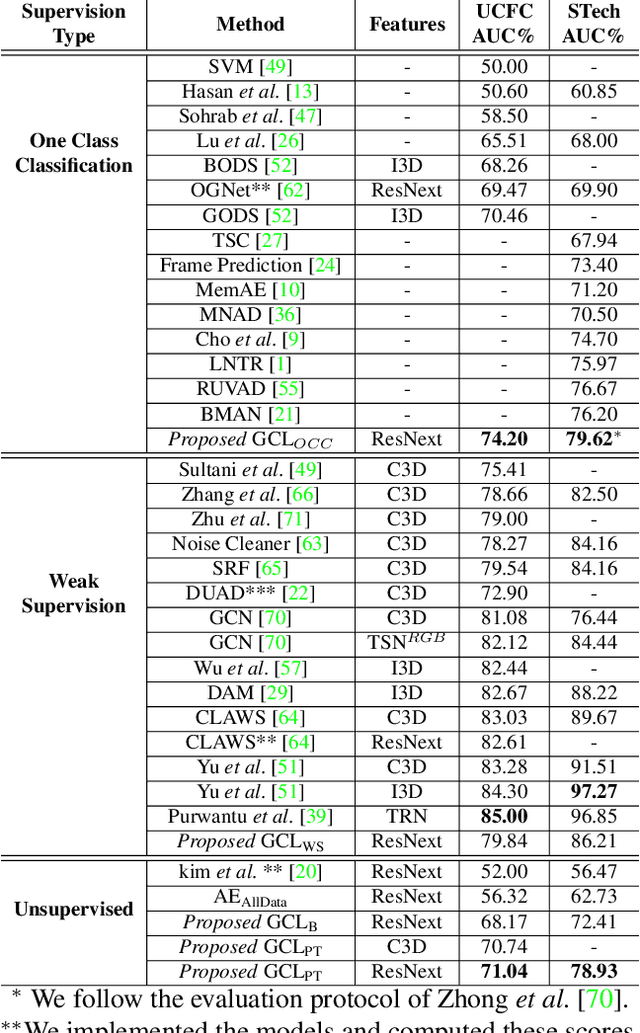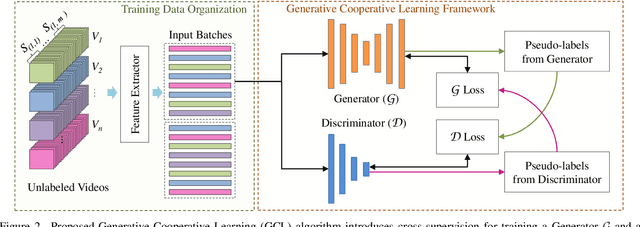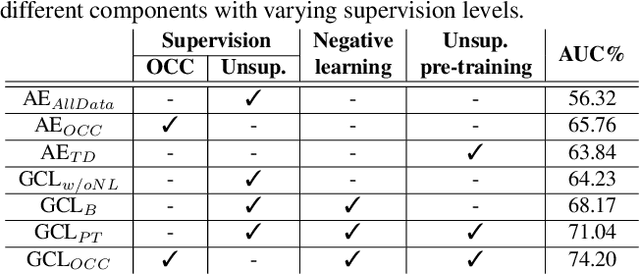Generative Cooperative Learning for Unsupervised Video Anomaly Detection
Paper and Code
Mar 08, 2022



Video anomaly detection is well investigated in weakly-supervised and one-class classification (OCC) settings. However, unsupervised video anomaly detection methods are quite sparse, likely because anomalies are less frequent in occurrence and usually not well-defined, which when coupled with the absence of ground truth supervision, could adversely affect the performance of the learning algorithms. This problem is challenging yet rewarding as it can completely eradicate the costs of obtaining laborious annotations and enable such systems to be deployed without human intervention. To this end, we propose a novel unsupervised Generative Cooperative Learning (GCL) approach for video anomaly detection that exploits the low frequency of anomalies towards building a cross-supervision between a generator and a discriminator. In essence, both networks get trained in a cooperative fashion, thereby allowing unsupervised learning. We conduct extensive experiments on two large-scale video anomaly detection datasets, UCF crime, and ShanghaiTech. Consistent improvement over the existing state-of-the-art unsupervised and OCC methods corroborate the effectiveness of our approach.
 Add to Chrome
Add to Chrome Add to Firefox
Add to Firefox Add to Edge
Add to Edge